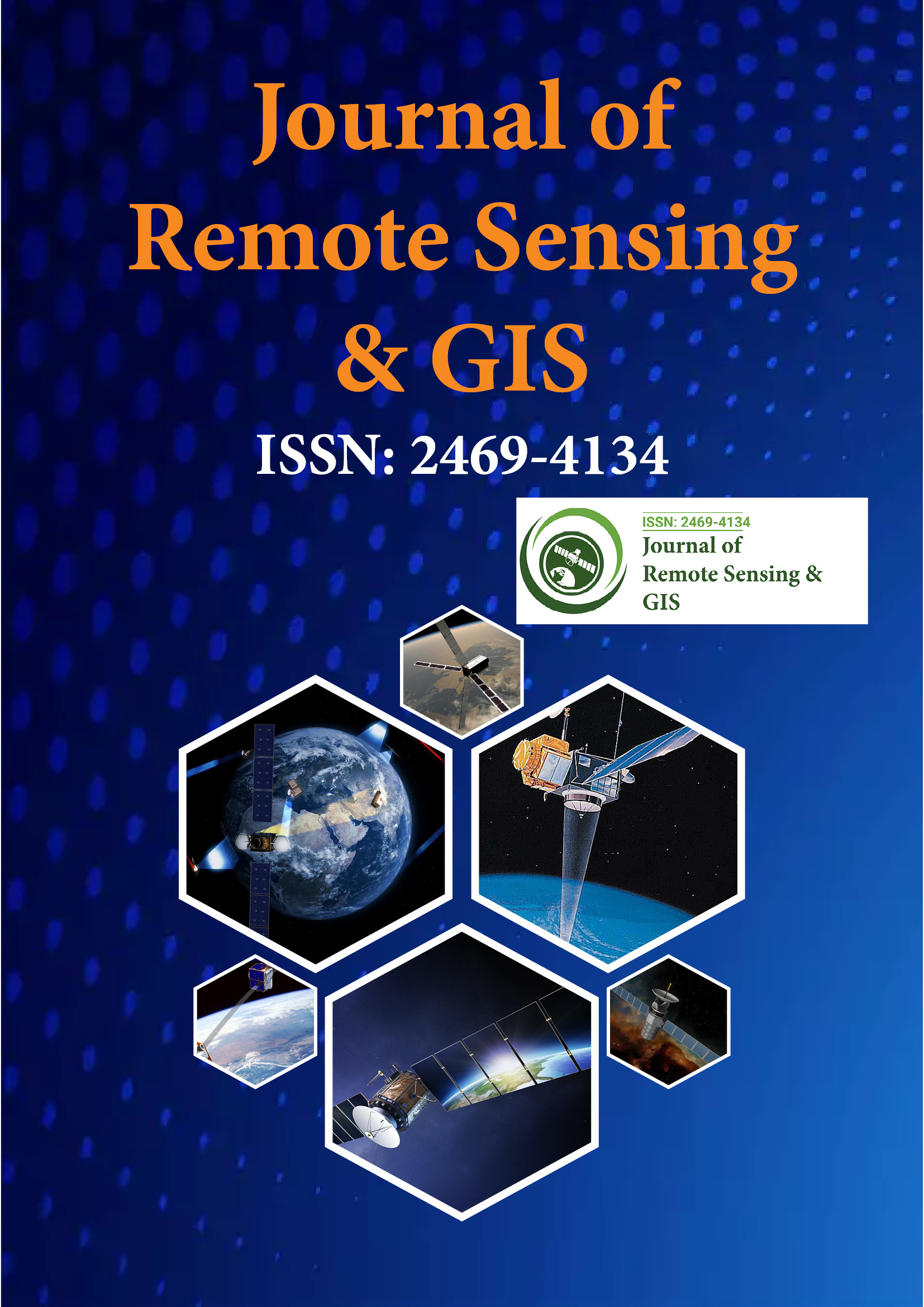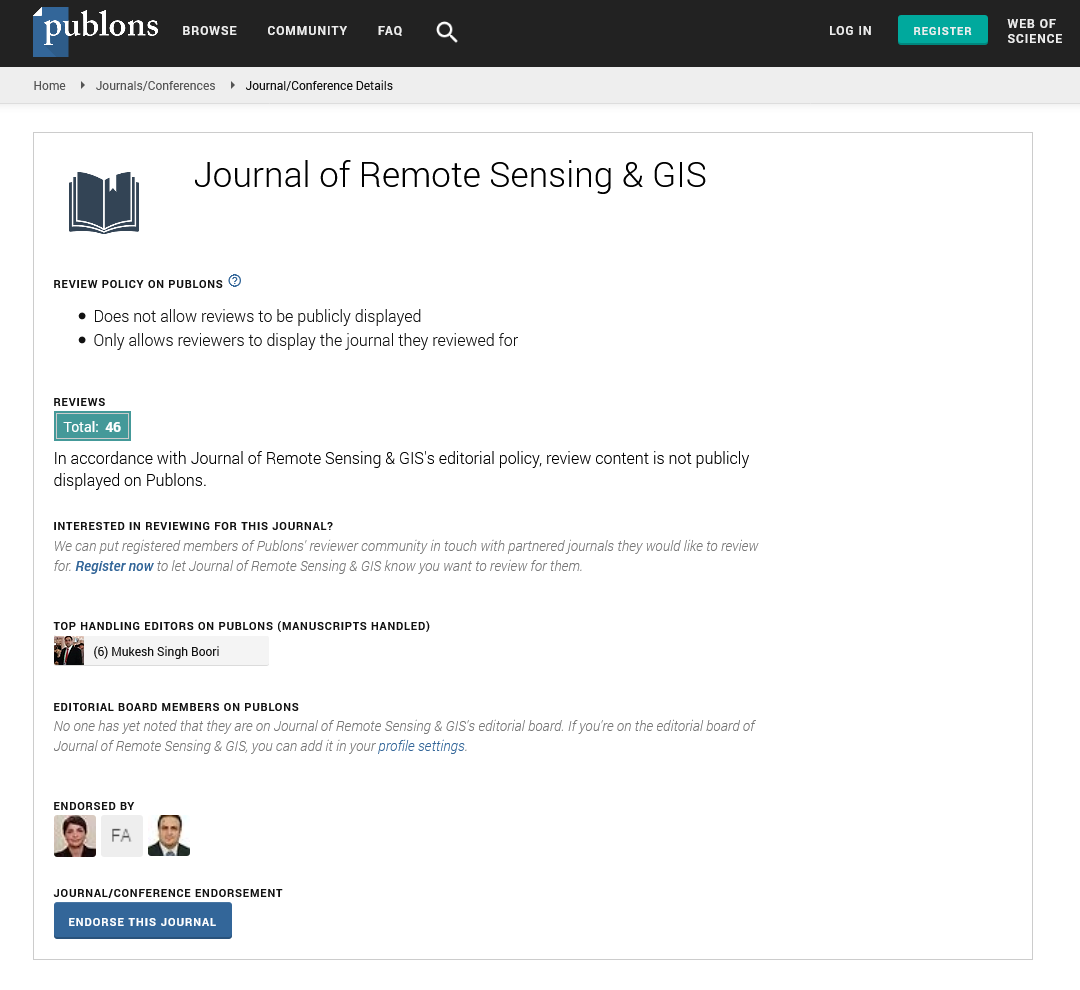Indexed In
- Open J Gate
- RefSeek
- Hamdard University
- EBSCO A-Z
- OCLC- WorldCat
- Publons
- International Scientific Indexing
- Euro Pub
- Google Scholar
Useful Links
Share This Page
Journal Flyer

Open Access Journals
- Agri and Aquaculture
- Biochemistry
- Bioinformatics & Systems Biology
- Business & Management
- Chemistry
- Clinical Sciences
- Engineering
- Food & Nutrition
- General Science
- Genetics & Molecular Biology
- Immunology & Microbiology
- Medical Sciences
- Neuroscience & Psychology
- Nursing & Health Care
- Pharmaceutical Sciences
Development of the dynamic model of the Aguascalientes Valley water basin
3rd World Congress on GIS and Remote Sensing
September 20-21, 2017 Charlotte, USA
Blanca Delgado
INEGI, Mexico
Posters & Accepted Abstracts: J Remote Sensing & GIS
Abstract:
Statement of the Problem: Water sustainability has to do with the physical and biological systems on which human beings are fully dependant, as well as with the economic and social policies needed to maintain these systems and, above all, the decisions taken in this regard. For some decades, the aquifer of the Aguascalientes Valley has been one of the most overexploited in Mexico. This is the result of decision-making detached to guarantee the availability of water, to the lack of specific public policies according to the functionality of the aquifer. The sustainability of the water resource can only be achieved if all the sources of supply and all the demands that exist in a region remain in balance over time. The purpose is to develop different scenarios for the sustainability of the Aguascalientes Valley aquifer based on the dynamic interaction of the fluctuations of the different factors mentioned above. Methodology & Theory: A dynamic model was developed that simulated the behaviour of biophysical processes including precipitation, infiltration, temporary storage of water through dams and wells; social and population dynamics and economic development as industrial, service provision and agriculture. Findings: The agricultural sector is the one that demands the largest amount of water from the wells and the Plutarco Elías Calles dam, up to 80% of the total demand. It is considered that through the agricultural technification and the change to other crops that demand less water, the pressure can be significantly reduced to the aquifer. However this important change can only be achieved paulatively over time. Conclusion: Technifying the agricultural sector, and carrying out the conversion of current crops to other ones with a more profitable economy and lower water demand can be considered with the leverage point to direct the aquifer to a significant saving of water.
Biography :
Blanca Delgado has experience in the methodology of dynamic models, especially in the agricultural sector, as a determinant factor in the availability of water. It has specialized the different types of crops and their water demand for the project of sustainability of the aquifer of the Valley of Aguascalientes directed by the INEGI.

